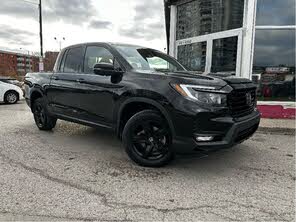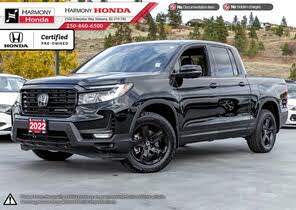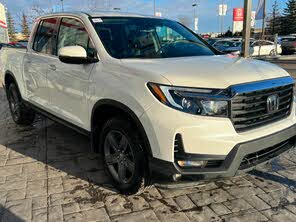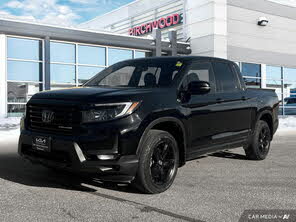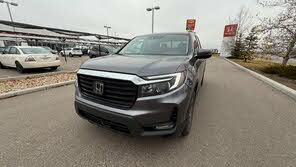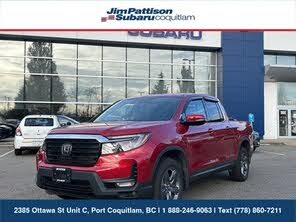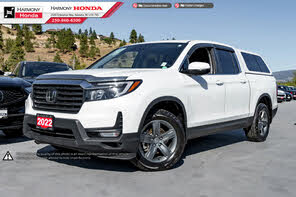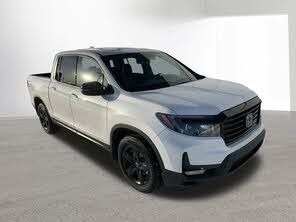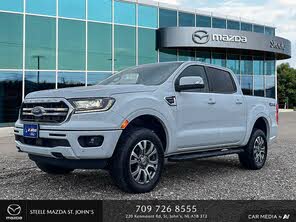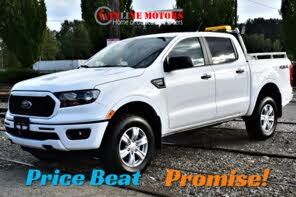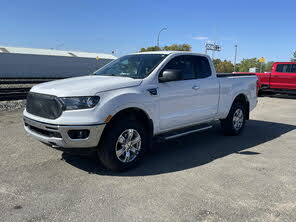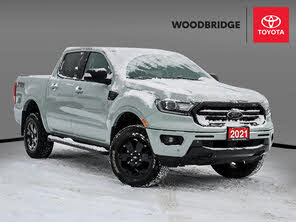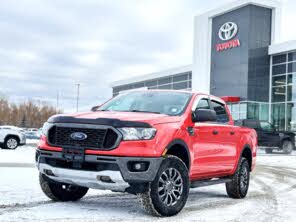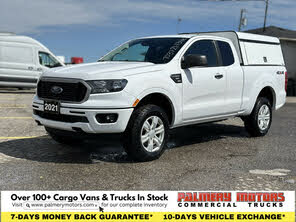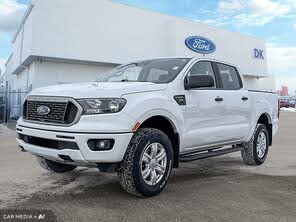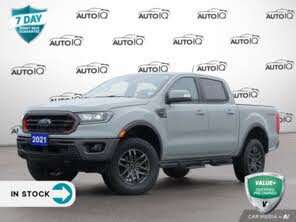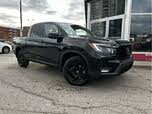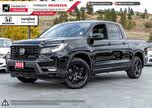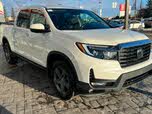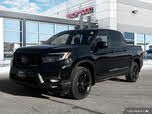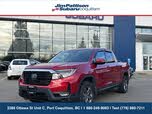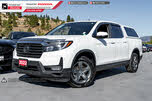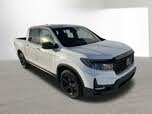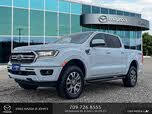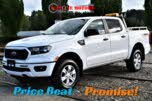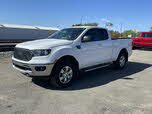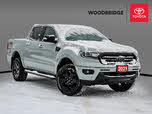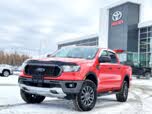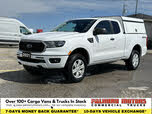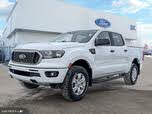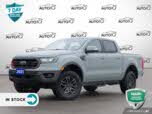2022 Honda Ridgeline vs 2021 Ford Ranger
Overview | |
MSRP$25,070 | MSRP$38,140 |
Average price$37,623 | Average price$44,091 |
Listings96 | Listings48 |
Ratings & Reviews | |
User Reviews | User Reviews |
Expert reviews | Expert reviews7.7 out of 10 |
Pros
| |
2021 Ford Ranger Reviews Summary | |
2022 Honda Ridgeline Reviews SummaryHonda isn’t known for pickup trucks, but that means it brings a different perspective to the genre. The 2022 Honda Ridgeline is like no other pickup on the market. The Ridgeline isn’t just being different for the sake of being different, either. It uses the same unibody construction that gives crossover SUVs greater refinement than traditional models to offer increased comfort and better on-road handling than most pickups. Since the Ridgeline’s debut, the Hyundai Santa Cruz and Ford Maverick have applied the unibody concept to smaller compact pickups, creating a new niche, but the Honda is a larger vehicle that competes with existing midsize pickups like the Ford Ranger, Jeep Gladiator, Nissan Frontier, Toyota Tacoma, and Chevrolet Colorado/GMC Canyon twins. The Ridgeline debuted for the 2006 model year and the current second-generation version dates back to the 2017 model year. It got a facelift for 2021, so it carries over to 2022 essentially unchanged. In Canada, trim levels include the base Ridgeline Sport, midlevel EX-L and Touring, and the range-topping Black Edition, which is what we sampled for this review. | |
No video found | No video found |
Popular Features & Specs | |
Engine2.3L 270 hp I4 | Engine3.5L 280 hp V6 |
Drive Train4X2 | Drive TrainAWD |
Seating Capacity4 | Seating Capacity5 |
Horsepower | Horsepower280 hp @ 6000 rpm |
MPG City21 | MPG City18 |
MPG Highway26 | MPG Highway24 |
Engine | |
Engine Name2.3L 270 hp I4 | Engine Name3.5L 280 hp V6 |
Torque | Torque262 lb-ft @ 4700 rpm |
Horsepower | Horsepower280 hp @ 6000 rpm |
Drivetrain4X2 | DrivetrainAWD |
Fuel Economy | |
MPG City21 | MPG City18 |
MPG Highway26 | MPG Highway24 |
Interior | |
Seating Capacity4 | Seating Capacity5 |
Safety | |
Front Crash Overall | Front Crash Overall5 |
Side Crash Overall | Side Crash Overall5 |
Dimensions & Capacity | |
Bed Length72.8 in | Bed Length64.0 in |
Cargo Space | Cargo Space7.3 cu ft |
Curb Weight4145 lbs | Curb Weight4436 lbs |
Height70.7 in | Height70.8 in |
Length210.8 in | Length210.2 in |
Width85.8 in | Width78.6 in |
Wheelbase126.8 in | Wheelbase125.2 in |
Maximum Payload1860 lbs | Maximum Payload1583 lbs |
Number of doors4 | Number of doors4 |
Maximum Towing Capacity7500 lbs | Maximum Towing Capacity5000 lbs |
Standard Towing Capacity3500 lbs | Standard Towing Capacity5000 lbs |
Overview | ||
MSRP | $25,070 | $38,140 |
Average price | $37,623 | $44,091 |
Listings | ||
Ratings & Reviews | ||
User reviews | ||
Expert reviews | 7.7 out of 10Read full review | |
Pros & cons | Pros
| |
Summary | Honda isn’t known for pickup trucks, but that means it brings a different perspective to the genre. The 2022 Honda Ridgeline is like no other pickup on the market. The Ridgeline isn’t just being different for the sake of being different, either. It uses the same unibody construction that gives crossover SUVs greater refinement than traditional models to offer increased comfort and better on-road handling than most pickups. Since the Ridgeline’s debut, the Hyundai Santa Cruz and Ford Maverick have applied the unibody concept to smaller compact pickups, creating a new niche, but the Honda is a larger vehicle that competes with existing midsize pickups like the Ford Ranger, Jeep Gladiator, Nissan Frontier, Toyota Tacoma, and Chevrolet Colorado/GMC Canyon twins. The Ridgeline debuted for the 2006 model year and the current second-generation version dates back to the 2017 model year. It got a facelift for 2021, so it carries over to 2022 essentially unchanged. In Canada, trim levels include the base Ridgeline Sport, midlevel EX-L and Touring, and the range-topping Black Edition, which is what we sampled for this review. | |
Video | No video found | No video found |
Popular Features & Specs | ||
Engine | 2.3L 270 hp I4 | 3.5L 280 hp V6 |
Drive Train | 4X2 | AWD |
Seating Capacity | 4 | 5 |
Horsepower | 280 hp @ 6000 rpm | |
MPG City | 21 | 18 |
MPG Highway | 26 | 24 |
Engine | ||
Engine Name | 2.3L 270 hp I4 | 3.5L 280 hp V6 |
Torque | 262 lb-ft @ 4700 rpm | |
Horsepower | 280 hp @ 6000 rpm | |
Drivetrain | 4X2 | AWD |
Fuel Economy | ||
MPG City | 21 | 18 |
MPG Highway | 26 | 24 |
Interior | ||
Seating Capacity | 4 | 5 |
Safety | ||
Front Crash Overall | 5 | |
Side Crash Overall | 5 | |
Dimensions & Capacity | ||
Bed Length | 72.8 in | 64.0 in |
Cargo Space | 7.3 cu ft | |
Curb Weight | 4145 lbs | 4436 lbs |
Height | 70.7 in | 70.8 in |
Length | 210.8 in | 210.2 in |
Width | 85.8 in | 78.6 in |
Wheelbase | 126.8 in | 125.2 in |
Maximum Payload | 1860 lbs | 1583 lbs |
Number of doors | 4 | 4 |
Maximum Towing Capacity | 7500 lbs | 5000 lbs |
Standard Towing Capacity | 3500 lbs | 5000 lbs |

By: CarGurus + AI
At CarGurus, our team of experienced automotive writers remain at the heart of our content operation, conducting hands-on car tests and writing insightful guides that are backed by years of industry experience. To complement this, we are harnessing AI to make our content offering more diverse and more helpful to shoppers than ever. To achieve this, our AI systems are based exclusively on CarGurus content, ratings and data, so that what we produce is both unique to CarGurus, and uniquely helpful to car shoppers.


